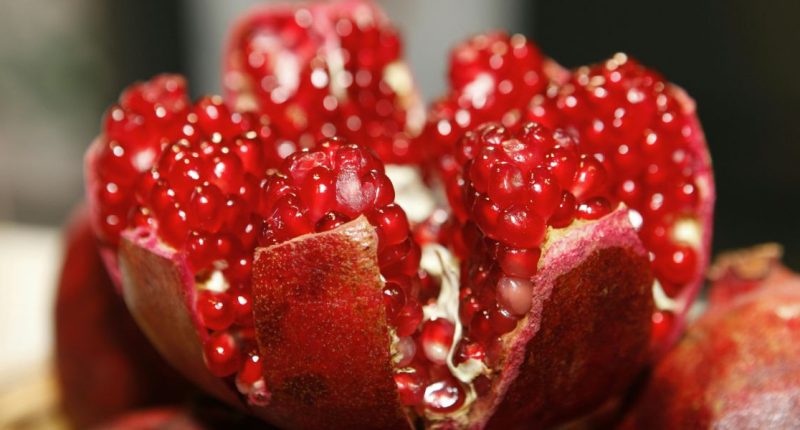People who regularly consume pomegranate extract are less at risk of developing cardiometabolic complications, new evidence has demonstrated.
Researchers have found that a high intake of pomegranate extract is associated with reduced inflammatory markers and systolic blood pressure levels.
The authors said: “The consumption of pomegranate extract may offer a valuable, non-pharmacological strategy to promote healthy ageing.”
- Western diet associated with weakened immunity and inflammation
- Aspartame may increase insulin levels and inflammation, study finds
Otherwise known as Punica granatum L, pomegranate is a fruit-bearing deciduous shrub in the family Lythraceae, subfamily Punicoideae, that grows between five and 10 m tall.
Pomegranates are a rich source of polyphenols, particularly ellagitannins and punicalagin, which exhibit strong antioxidant and anti-inflammatory properties, potentially benefiting cardiovascular health, cognitive function, and more.
A total of 86 adults took part in the study, all of whom were aged between 55 and 70.
The average BMI of the participants was 24 and their average systolic blood pressure was 128 mm Hg.
Participants with a high intake of pomegranate extract saw their inflammatory markers reduce more than those in the placebo group.
Interleukin (IL-6) levels of the participants reduced when they consumed pomegranate extract, the results have revealed.
- Dementia triggered by inflammatory dietary habits
- Insights into inflammation and heart disease offer hope for better treatments
In addition, the findings have shown that pomegranate extract consumption reduced the participant’s systolic blood pressure by 5.2 mm Hg and their diastolic blood pressure by 3 mm Hg.
A 5% reduction in systolic blood pressure is linked with a 10% decrease in the risk of major cardiovascular events, experts have reported.
Read more in the journal Nutrients.









